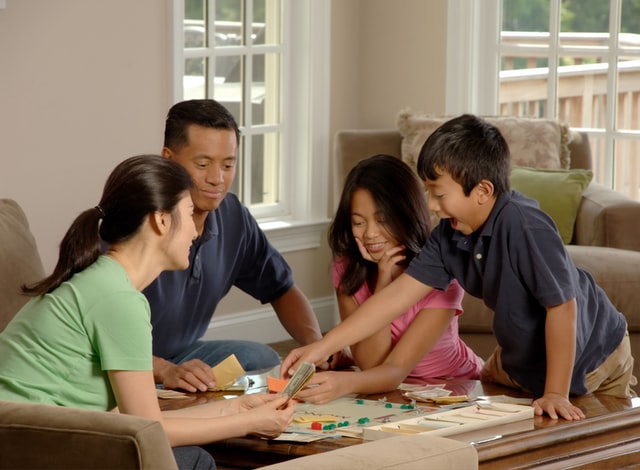Why Interactive Board Games Are Essential to Children

Aside from promoting cooperative gameplay, these games are a great way for kids to develop skills such as social skills, memory, and improving their geography knowledge. These benefits can be obtained through various types of interactive board games. This article will highlight several of the benefits of these games. You will also learn how to make them a part of your children’s daily routine. To discover why these games are essential for kids, read on.
Cooperative gameplay
Cooperative gameplay in interactive board games for children is an excellent way to encourage positive behavior and develop teamwork. While competitive games encourage competition, they often lead to poor self-esteem in children who lose. On the other hand, cooperative games encourage teamwork and children to consider both sides of a question. They can also help children learn about scientific research, experimental design, and hypothesis testing. Cooperative games are fun for everyone and a great way to foster trust in children.
Cooperative gameplay in interactive board games for children can also foster social interaction. Games that promote teamwork foster camaraderie and trust, which is essential for social development. Furthermore, board games are excellent tools for embedded learning, which develops mental skills through daily tasks and informal instruction. And because cooperative games can foster all these skills, they are great for fostering social interaction.
Memory improvement
A recent study published in Parenting Science found that cognitive abilities improved after playing challenging board games. The children in the study, aged six to 17 years, showed greater gains when playing math-based games compared to their peers who didn’t play the games. Furthermore, they retained those gains when tested later. According to Harvard Medical School, the worst habits for the brain include sitting for long periods, lack of sleep, and chronic stress. In addition, a sedentary lifestyle has been associated with a decrease in the brain region responsible for making memories.
Children can also use interactive board games to improve their memory. A game like “3 Cup Memory” requires concentration and a small item. The child must watch each cup move and show the correct one to the other players. The game can be played with different difficulty levels, which are further increased by adding more cups and shuffling. This game is also good for getting your child moving and active. In addition, it also helps develop motor skills and eye-hand coordination.
Learning about place concepts
Learning about place concepts through interactive board games can help young children build their foundations in math. For example, kindergarten students are introduced to place-value techniques when learning to count. By the end of kindergarten, these students will be able to write a large number without errors and understand why each place is one-tenth of the other. The place-value method can also help children build abstract thinking and language skills. There are many ways to incorporate these concepts into games.
To teach place value, buy stackable paper cups from the dollar store. Each one has the numbers 1-9 along its edge. Children can practice place values by stacking them and counting them by number. Other materials that will be useful are pom-poms for ones and tens, wood craft sticks, and LEGO bricks. It is one of the most fun and effective ways to teach children to place value concepts.
Developing social skills
Developing social skills through cooperative board games is an excellent way to teach children how to work with others and follow the rules. This game is also helpful for children with attention and sportsmanship skills. Children of all ages can enjoy playing it, and the lessons are never too old to learn.
Emotional Bingo: This game teaches social skills by having young children read facial expressions. It is similar to traditional bingo but uses different emotions on cards. There is also an Emotions Scavenger Hunt in which kids have to visit a certain place and check off emotions as they see them. These games are fun and effective ways to learn social skills in young children. There are many ways to use social skills games to teach children to communicate effectively.
Learning about manners
Interactive board games can be a great way to teach children about good manners. For example, some children may enjoy learning about table manners while others prefer a more active approach, such as making their own good manners posters. Regardless of your child’s age or interests, there is a board game for good manners that will fit the bill. Good manners games often include word searches that build vocabulary and attention to detail.



